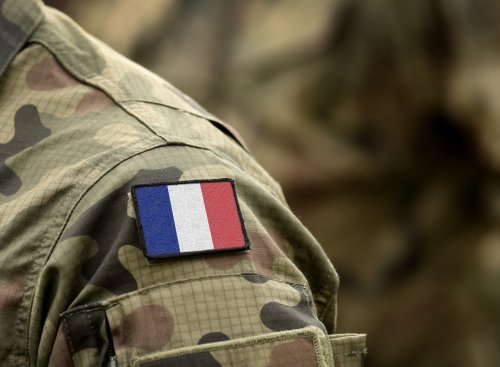Belgium, (Brussels Morning Newspaper) After Paris experienced a string of military and political defeats in its former sphere of influence, French President Emmanuel Macron will travel to Africa this week in an effort to thwart Russian efforts to drive France off the continent. French President Emmanuel Macron has prioritized the security and stability of the Sahel region since assuming office in 2017.
A number of security issues, such as terrorism, organized crime, and inter-communal violence, have plagued the Sahel, a semi-arid region that spans ten nations in West and Central Africa. By deploying French troops and collaborating with regional partners to advance development and security, Macron has made an effort to resolve these issues.
The formation of the G5 Sahel Joint Force, a military alliance made up of Burkina Faso, Chad, Mali, Mauritania, and Niger, is one of Macron’s most important efforts in the Sahel. The force, which was established in 2017, has the responsibility of carrying out cooperative military actions against armed organizations in the area. Unfortunately, Mali decided on 15 May 2022 to withdraw from the G5-Sahel group and its Joint Force.
Macron has been a steadfast supporter of the force, giving its members funding and training while also arguing for more foreign assistance. However, the G5 Sahel Joint Force has encountered a number of difficulties, including a lack of money, logistical issues, and member-state coordination issues. Despite these difficulties, Macron has kept the force a priority and has urged more international assistance to guarantee its success.
An active Leader
Macron has also worked to resolve the root causes of the Sahel’s instability by fostering regional growth and development.
He established the Alliance for the Sahel in 2019 as a collaboration between the G5 Sahel nations, the African Union, and the European Union to raise funds for regional development initiatives. The alliance has concentrated on important sectors like infrastructure, schooling, and agriculture in an effort to boost employment and the economy.
The Sahel’s security condition is still precarious, despite these efforts. Al-Qaeda in the Islamic Maghreb and Boko Haram, as well as other Islamist extremist organizations, are still active in the area and continue to target both security personnel and civilians. Additionally, competition for resources and ethnic tensions have fueled a rise in intercommunal violence in some areas.
With his initiatives to advance security and development in the Sahel, Emmanuel Macron has had a sizable impact as a leader in the area. Although there have been obstacles and setbacks, his support for the G5 Sahel Joint Force and the Alliance for the Sahel shows his devotion to finding solutions to the region’s many pressing problems. However, the Sahel’s security situation is still precarious, and stability and prosperity over the long run will require consistent foreign support.
What Future Holds
Threats from terrorism, organized crime, and inter-communal violence continue to pose serious security challenges to the Sahel area of West and Central Africa. The Sahel region’s situation is still precarious despite efforts by regional and international players to address these issues, and a number of impending security issues are likely to make matters worse.
The ongoing threat presented by Islamist extremist groups like Al-Qaeda in the Islamic Maghreb (AQIM) and the Islamic State in the Greater Sahara is one of the most urgent security challenges in the Sahel (ISGS).
These organizations have increased their presence in the border regions between Burkina Faso, Mali, and Niger in recent years after carrying out a string of deadly attacks on civilian and military targets in the area. Another threat to the region’s security is the emergence of armed organizations that aren’t specifically islamist but are still adding to the general unrest in the Sahel.
These organizations include vigilante groups and ethnic militias that are escalating conflicts between communities, as well as criminal gangs that indulge in kidnapping and smuggling. The Sahel region faces a number of underlying issues that contribute to its instability in addition to these security concerns.
These include poverty, food insecurity, and climate change, all of which exacerbate already-existing social and economic disparities while also provoking conflict and displacing populations. In order to address these issues, regional and international players will need to take a comprehensive stance that tackles the security issues as well as the underlying economic and social causes of instability in the Sahel.
This will necessitate ongoing investments in economic development and security efforts like the Multinational Joint Task Force and the G5 Sahel Joint Force, both of which are tasked with battling Boko Haram in the Lake Chad Basin.




